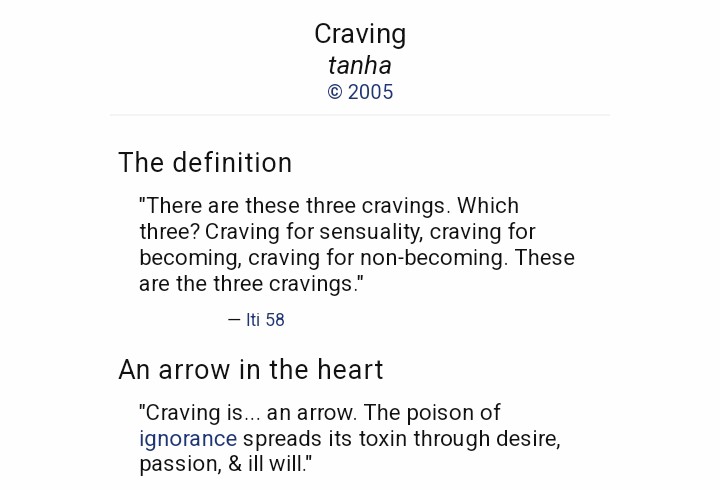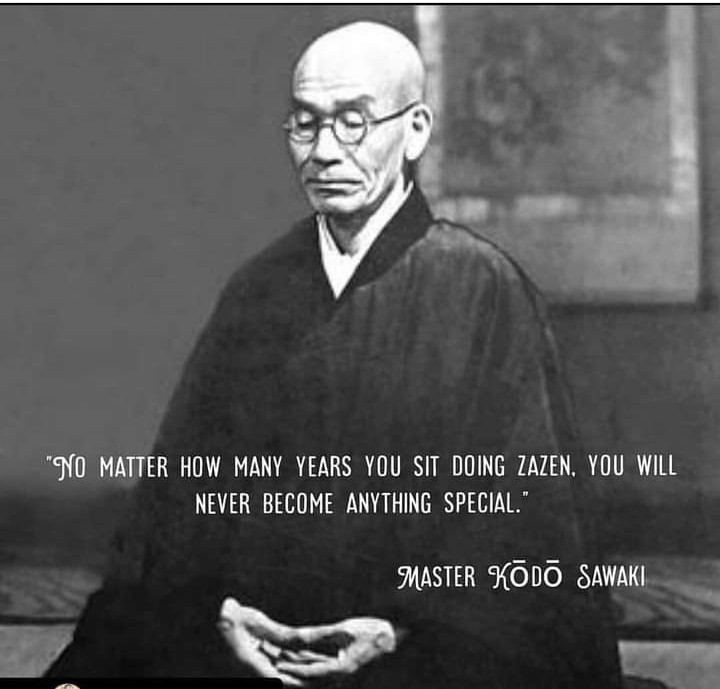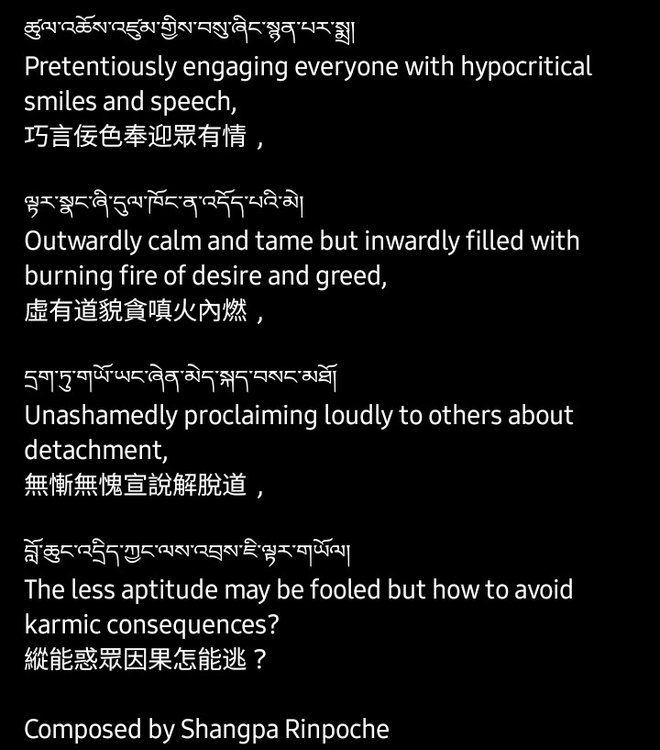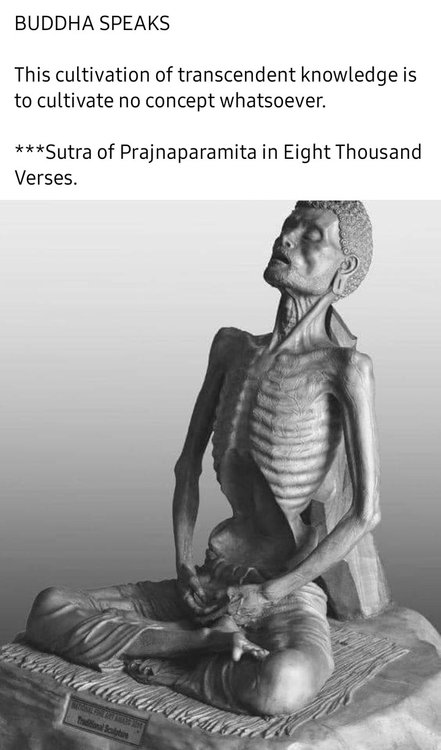-
Content count
10,542 -
Joined
-
Last visited
-
Days Won
100
Posts posted by C T
-
-
1 hour ago, Lairg said:I have taught the method to people having difficulty with physical health and relationships. They usually feel an immediate energy change and are happier
The other day I spent a hour on internet video with a doctor dying from bone cancer. After he did the heart work with me, he said he felt much better. I have had to do a bit since then remotely but he is still improving the light in his bones
In the Roman Catholic tradition, Jesus has a flaming heart that radiates light. Perhaps all humans have such.
This is what you claim.
It's easy to make claims.
Over the years, this forum have heard it all.
-
Ultimately, all authentic Buddhist paths will lead out of contractive, sticky, graspy mindsets.
The Buddha recognised needs exist in multivaried forms, hence the many doors.
-
 3
3
-
 1
1
-
-
1 hour ago, iinatti said:Super interesting and helpful. Have been reading into this and struggling to make out the difference between the two. The sentence on the Dzogchen that stuck out to me:
I guess this would would be in contrast to training with mindfulness to achieve non-fixation or non-attachment to the form, with perhaps either approach leading to the same place.
Maybe this metaphor works?: In Dzogchen you hold the egg with an open palm, but in Mahamudra you softly close your hand around it.
Aptly put 👍😃
-
4 hours ago, Lairg said:I usually show those interested how to push light out of the heart into most situations of congested energy and relationships
The light in the heart is usually the most pure light in a standard human
First time hearing of the feat (pushing light out from the heart).
Can you substantiate this rather outlandish claim?
-
From Tulku Urgyen:
In Mahamudra, you are introduced to mind and then you train with awareness. The practice is mixed with mind until reaching nonmeditation. Then the practice is only rigpa, the ultimate view. In one-pointedness and simplicity, you exert lots of mental effort, through which fixation greatly reduces and obscurations are cast away. It is like peeling off different layers of corn; first one is peeled, then the next and the next. In Dzogchen, from the very beginning you are introduced to nonmeditation, nondistraction.
According to the words of Künkhyen Tsele Rinpoche, also called Tsele Natsok Rangdröl:
Mahamudra and Dzogchen
differ in words but not in meaning.
The only difference is that Mahamudra stresses mindfulness
while Dzogchen relaxes within awareness.Mahamudra stresses mainly mindfulness. “Mindfulness” or “presence of mind” means to apply mindfulness or watchfulness, while Dzogchen relaxes into awareness; this is the mere difference. As it is said, “In Dzogchen the ultimate view is to relax into awareness,” which refers to nonfixation, nongrasping—[to remain] in the continuity of nongrasping. It is said in Mahamudra, “It is necessary to apply mindfulness.”
[In Mahamudra] you then train with appearances by utilizing whichever of the six sense perceptions that occurs, without keeping or discarding. —Tsele Natsok Rangdröl
In Dzogchen you “train with awareness” and in Mahamudra you “train with appearances.” The meaning of training with appearances is not inhibiting any experience. It is certain that forms will appear to your eyes and that sounds will appear to your ears; experience is unobstructed, intrinsic. To train means that whatever forms appear in your field of vision, however varied, just recognize the watcher; that is the training.
According to Dzogchen, awareness does not need to depend on external appearances. Simply remain in rigpa. Whatever appearance may occur—without trying to prohibit, inhibit, or encourage it—train in awareness itself. Here, “training” means developing a skill, becoming practiced, such as doing physical exercise. Similarly, students in school train by developing some skill, learning something.
-
 4
4
-
 1
1
-
-
2 hours ago, Ajay0 said:It is good to be reminded of the basics so that people will exercise due caution .
People associate drugs with spirituality, which is an incorrect perception, considering its correlation with higher crime rates, rampant violence due to drug trafficking, regression in professional and personal lives, lower physical and mental health, as well as greater cravings and addictive behavior which makes one more unconscious and away from enlightenment and the much superior bliss of the natural state.
As I stated earlier, it is like a thirsty person being content with sewer water when there is a fresh water lake nearby. But his tunnel vision prevents him from considering the lake nearby and even grates on those who point out the lake. My threads are there to provide perspective , that's all.

Metaphorically speaking, this 'fresh water' is as much a cause of addiction, if not more than drugs. Look at the impactful growth of cults as an example. Don't know the exact stats, but significant numbers go missing each day. A percentage of this fall prey to cult recruiters and groomers. Under the guise of 'fresh water... come, drink.'
Proper perspective takes into account many factors. Haven't you anecdotal evidence of addiction to gurus and spiritual trips?
-
 1
1
-
-
Have you considered that violence isn't just a gender thing? Of course you have.
Better to address the real issue objectively.... like why certain people, men and women and those who'd rather not be genderised, just cannot help becoming vulnerable. And this includes those sad 'gurus', who, on a different level, are no less gullible.
It's not just women who get violated.
-
On 10/07/2023 at 12:32 PM, Mark Foote said:
Tibetan for lovelove a little slight of hand
Thangka magic, deepthangka magic, deep
darkness is not an option
mind that beer belly
🤭
-
 1
1
-
 1
1
-
-
-
There are times when darkness can be an excellent teacher.
There are also times where one needs to remove certain gurus in order to regain sanity and balance.
Always question traditional rules, and retain clarity regarding dogmatic hogwash.
-
-
Gullibility is the only thing older than the oldest profession.
Some Iranian chap made himself up to be a Lionel Messi lookalike, deceiving 23 women into lustful soirees in the name of gullibility.
But the question is... was it really deception when the whole premise of sleeping with a superstar footballer is based off a fantasy? 23 women fantasised about sex with Messi, and a pretender fantasised about bedding 23 women. Remember: cause and effect is never a linear thing. Similar personal, transactional & institutional dynamics play out in countless other situations, so don't be too quick to pass moral judgements.
-
-
On 05/07/2023 at 7:07 PM, aotvoid said:the riches of love
because some of us just can
not make any cashnot make any cash
please fire the accountant
sleeping on the job
-
 1
1
-
-
1 hour ago, dwai said:That’s not a Sanskrit word. Must be pali

Must be 😊
-
4 hours ago, dwai said:It is Trshnā.

-
The thing that binds one to samsara is craving. Even craving for the good is a form of stress. This is very clear in the Buddhist approach towards bliss.
Also, it's not just substances that people abuse; even meditation, in its myriad forms, can be abused, or used as a manipulative tool for toxic self gratification.
On a very practical level, using drugs as an intermediary in attempts to understand and perhaps gain deeper insights into the cause(s) of craving (I think it's Tanha in Sanskrit, translated as 'recurring thirst') present some fundamental but easily avoidable hiccupy problems.
___ ___
"Bound with the bondage of craving,
their minds smitten with becoming and non-becoming, they are bound with the bondage of Mara - people with no safety from bondage, beings going through the wandering-on, headed for birth and death.
While those who've abandoned craving, free from the craving for becoming and non-becoming, reaching the end of fermentations, though in the world, have gone beyond." -- Gautama Buddha
-
 4
4
-
-
-
17 hours ago, Nintendao said:on the Milky Way
Three Musketeers set sail in
Cadbury Creme Eggs
Cadbury Creme eggs
I'll raise you an Oreo
lost all my Kitkats
-
According to the Dzogchen teachings, the good practitioner, upon dying, merges his or her rigpa into the space of dharmadhatu. Such practitioners can leave the body in a variety of ways, of which three will be mentioned.
Some leave the body as a heap of rainbow light or leave it as a heap of one of three elements fire, water, or air. Others, utterly unconcerned, leave the body anywhere, in the manner of an animal. Still others make an announcement, give pith instructions and advice to their disciples, and leave their bodies as precious relics for generations to come. His Holiness Dudjom Rinpoche chose the third way.
The body is the product of past karma. Even good practitioners experience physical difficulties. It is said that for the yogi, the body is bondage it prevents the blazing power of rigpa from manifesting.
The moment the body and rigpa separate, the Dzogchen yogi attains the youthful vase body, or Samantabhadra state. This is not death—it is liberation.
His Holiness Dudjom Rinpoche entered mahaparinirvana on January 17, 1987, at his home in Dordogne, in southern France. There were many signs of his great realization—visual, auditory, olfactory, and tactile.
- The visual signs were that his complexion remained bright and clear, just as a living person; also, rainbows and spheres of light appeared.
- The auditory signs were beautiful sounds heard in and around the home.
- The olfactory signs were beautiful fragrances, also within and outside his home.
- His Holiness's body was flexible and soft to the touch, without a trace of rigidity--this was the tactile sign. -
"We have a strange anxiety in us; that if we don't interfere, then it won't happen. Now, that's the root of an enormous amount of trouble." ~ Alan Watts
-
 2
2
-
 1
1
-
-
On 16/06/2023 at 11:48 AM, Mark Foote said:try walking the dog
mash potatoes, do the twist
Good God, get it hot
good god, get it hot
twiddle your thumbs while waiting
no joy in sulking
-
 1
1
-
-
31 minutes ago, Kojiro said:apricots are good, but a little acidic, aren't they? peaches are sweeter


Are you averse to fruits that have a bit of tang in them? Curious, as this is the second time you're mentioning this acidity thing.
Personally, I tend to avoid overly sweet fruits like melons, custard apples, papayas, persimmons, certain pears & plums, etc.
Preference for pineapples, soursop, nectarines, mangosteens, some types of mangos, most berries, even coconuts. I also enjoy foraging for wild fruits & berries whenever the opportunity arises.
-
 2
2
-
-
"It is man's intelligence that makes him so often behave more stupidly than the beasts. Man is impelled to invent theories to account for what happens in the world. Unfortunately, he is not quite intelligent enough, in most cases, to find correct explanations. So that when he acts on his theories, he behaves very often like a lunatic. Thus, no animal is clever enough, when there is a drought, to imagine that the rain is being withheld by evil spirits, or as punishment for its transgressions. Therefore, you never see animals going through the absurd and often horrible fooleries of magic and religion. No horse, for example would kill one of its foals to make the wind change direction. Dogs do not ritually urinate in the hope of persuading heaven to do the same and send down rain. Asses do not bray a liturgy to cloudless skies. Nor do cats attempt, by abstinence from cat's meat, to wheedle the feline spirits into benevolence. Only man behaves with such gratuitous folly. It is the price he has to pay for being intelligent but not, as yet, intelligent enough. "
~ Aldous Huxley: Texts and Pretexts.
-
 1
1
-
 1
1
-








Bliss and Enlightenment by James Swartz
in General Discussion
Posted
Yes, we all have that empath thing to some degree. With time, some lose it for various reasons. Something that relates to degrees or the gradual seeping in of cynicism or simply being jaded with life. But what was claimed is quite different.